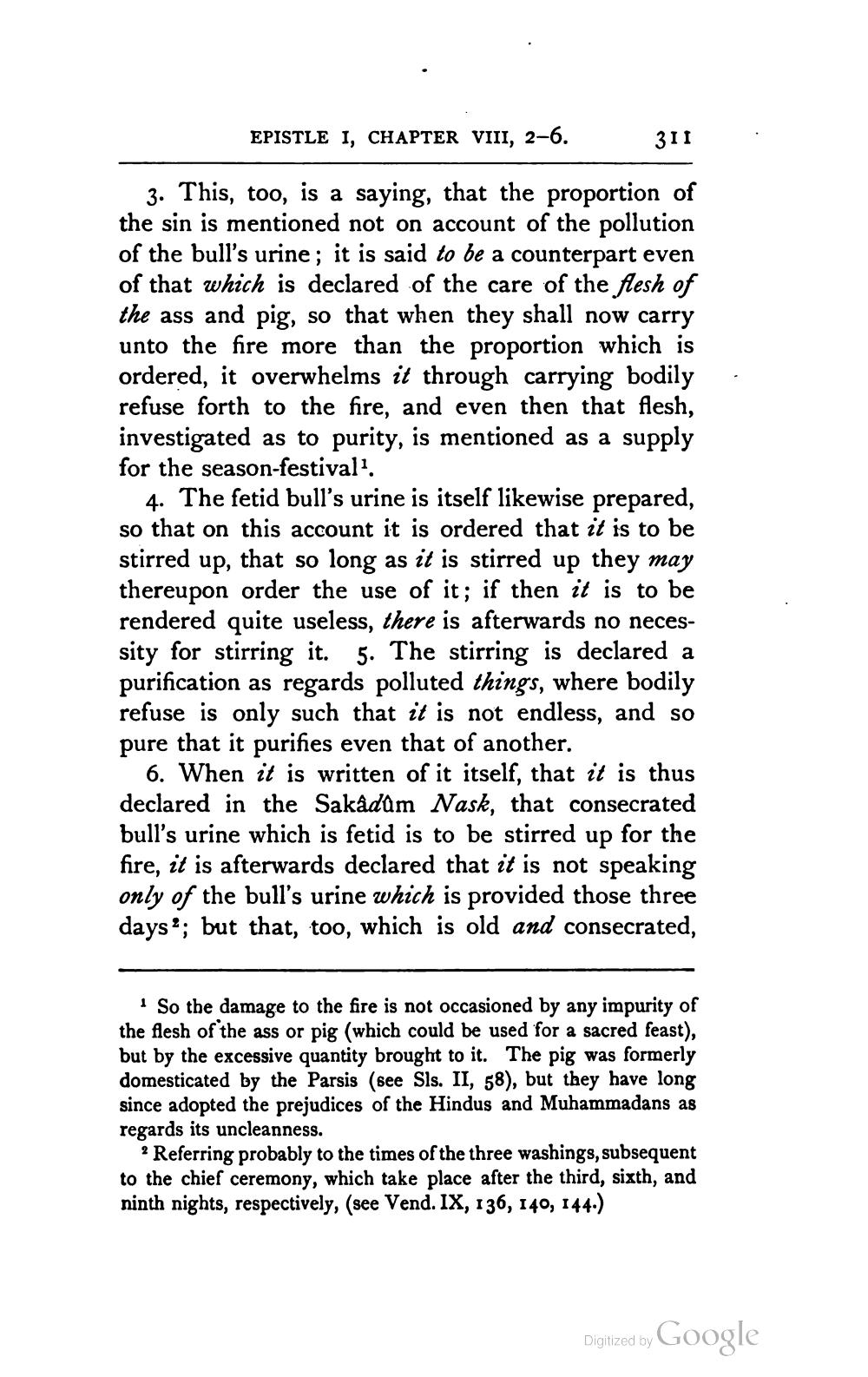________________
EPISTLE I, CHAPTER VIII, 2-6.
311
3. This, too, is a saying, that the proportion of the sin is mentioned not on account of the pollution of the bull's urine; it is said to be a counterpart even of that which is declared of the care of the flesh of the ass and pig, so that when they shall now carry unto the fire more than the proportion which is ordered, it overwhelms it through carrying bodily refuse forth to the fire, and even then that flesh, investigated as to purity, is mentioned as a supply for the season-festival.
4. The fetid bull's urine is itself likewise prepared, so that on this account it is ordered that it is to be stirred up, that so long as it is stirred up they may thereupon order the use of it; if then it is to be rendered quite useless, there is afterwards no necessity for stirring it. 5. The stirring is declared a purification as regards polluted things, where bodily refuse is only such that it is not endless, and so pure that it purifies even that of another.
6. When it is written of it itself, that it is thus declared in the Sakadam Nask, that consecrated bull's urine which is fetid is to be stirred up for the fire, it is afterwards declared that it is not speaking only of the bull's urine which is provided those three days?; but that, too, which is old and consecrated,
So the damage to the fire is not occasioned by any impurity of the flesh of the ass or pig (which could be used for a sacred feast), but by the excessive quantity brought to it. The pig was formerly domesticated by the Parsis (see Sls. II, 58), but they have long since adopted the prejudices of the Hindus and Muhammadans as regards its uncleanness.
? Referring probably to the times of the three washings, subsequent to the chief ceremony, which take place after the third, sixth, and ninth nights, respectively, (see Vend. IX, 136, 140, 144.)
Digitized by Google




